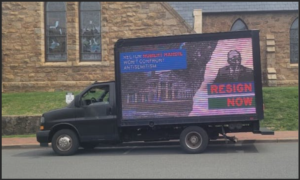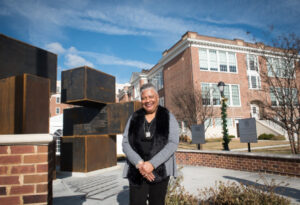
Charlottesville neighborhoods. Courtesy Charlottesville Low-Income Housing Coalition
by James C. Sherlock
In the relationship between Charlottesville and the University of Virginia, very bad things have happened to Charlottesville and continue to do so.
I have developed a working thesis on that relationship.
The city is at the mercy of the University by virtue of the latter’s wealth, influence, and power in Charlottesville elections.
It is, driven by University community voters, the bluest voting district in the Commonwealth.
Unfailingly progressive Charlottesville city council, school board and Commonwealth’s Attorney candidates are elected by the dominant votes of the University, its employees and its students.
Charlottesville City Schools (CCS) are to a large degree creatures of the University.
Many CCS teachers have their bachelors and/or advanced degrees from UVa’s School of Education and Human Development. Many University ed school students do their student teaching in Charlottesville.
Every progressive educational policy and virtually every experiment the University’s ed school can dream up are visited on those students. The University’s ed school Research Centers and Labs find the proximity convenient and a pliant school board welcoming.
The University can’t bear to leave anything in CCS alone.
As Charlottesville High School faces the aftermath of rising rates of violence at the school and three canceled days of school due to alack of personnel, teachers at the University and other community groups have assisted in the school’s response. Faculty from the University’s School of Education and Human Development were present at development sessions with Charlottesville High School teachers aiming to address underlying issues….
“Dr. Stephanie Rowley, dean of the University’s Education School, said faculty from Education’s counselor education and educational psychology programs were particularly involved with the efforts because of the relevance of their expertise.”
There is no record of their being invited.
“Lack of personnel”. The teachers walked out because of runaway violence.
The University “lent a hand”.
“In light of the University’s recent push to bolster its impact in Charlottesville, some members of the University who specialize in education attended the teacher work day meetings at Charlottesville High School.”
Seriously. To “bolster (the University’s) impact in Charlottesville”.
For Black children in CCS schools, that influence, long-running and well-meaning though it has been, has turned out to have been a disaster unparalleled in the Commonwealth.
Continue reading →
 Pearl’s letter was prompted in part by the administration’s response to a recent incident in which a truck with digital billboards rolled through the University displaying messages critical of Hardie. One screen said, “Rector Robert Hardie won’t confront antisemitism” while another said Hardie is “unfit to lead U.Va.” The administration’s reaction was to criticize the slogans and investigate who was behind the stunt, Pearl said.
Pearl’s letter was prompted in part by the administration’s response to a recent incident in which a truck with digital billboards rolled through the University displaying messages critical of Hardie. One screen said, “Rector Robert Hardie won’t confront antisemitism” while another said Hardie is “unfit to lead U.Va.” The administration’s reaction was to criticize the slogans and investigate who was behind the stunt, Pearl said.
 by Jon Baliles
by Jon Baliles



 by Kerry Dougherty
by Kerry Dougherty




